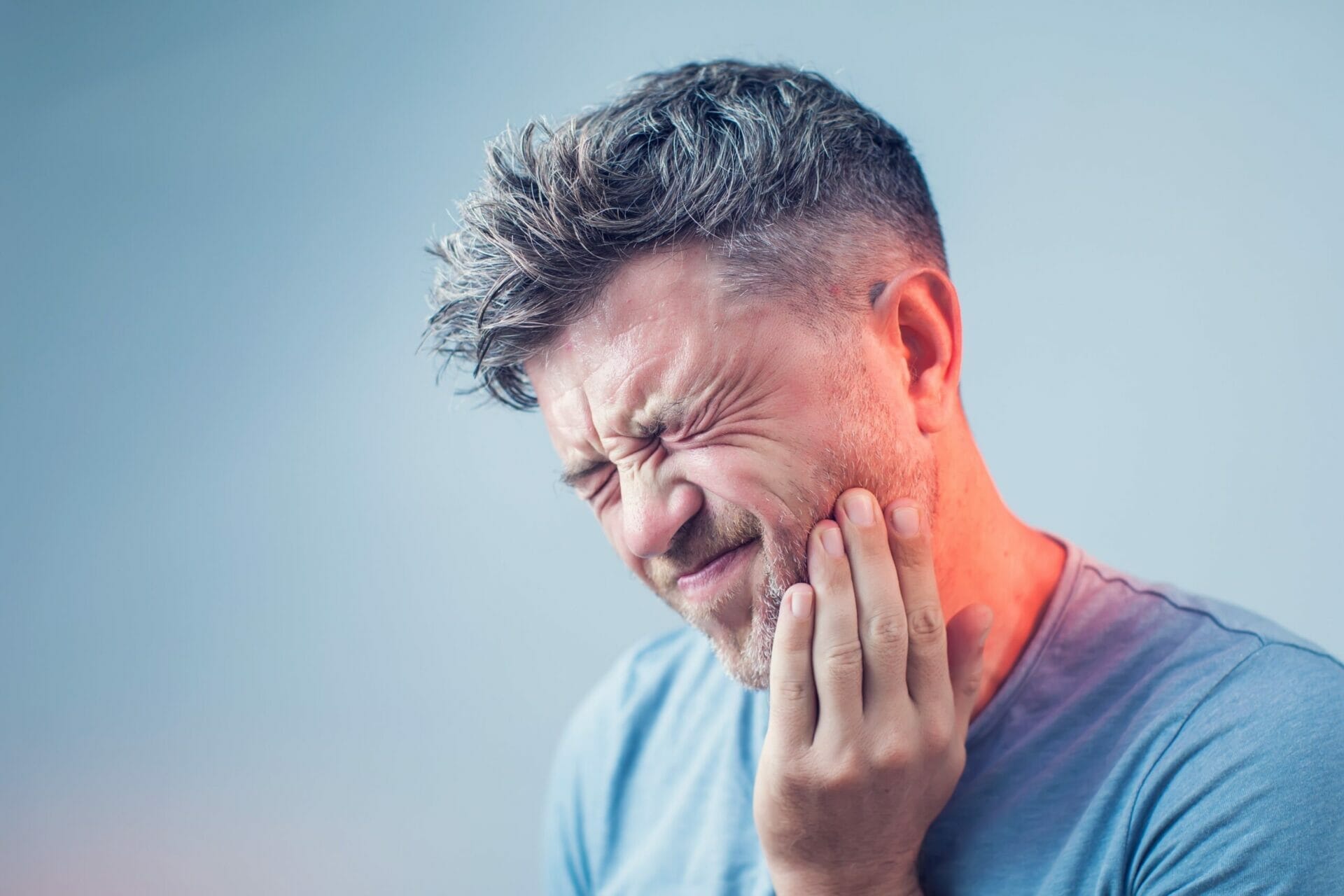
Dry Socket (DS) is a painful post-operative complication following Wisdom Tooth removal. Today, our Kitchener Dentist, Dr. Kyle Hornby will discuss dry socket while sharing tips to improve post-extraction healing outcomes!
After tooth extraction, healing begins with a clot developing in the root socket. The socket is basically the hole left once tooth and roots are gone. Over time, the clot is replaced by fibrous healing tissue and eventually bone and connective tissue. The blood clot is essential to all healing stages that come after it.
A dry socket occurs when the clot dries out or falls out. This exposes the bony walls of the extraction socket. Those walls contain hundreds of nerve endings which are no longer insulated by a blood clot. The result is intense burning pain along with a bad taste and smell in the mouth.
So, is dry socket bad?
Because all healing stages depend on formation of a healthy blood clot, dry socket prevents proper healing of an extraction site. In addition, the intense discomfort it causes is something that patients want to remedy quickly.
So how do you treat dry socket? How do you prevent dry socket?
I've got some answers and helpful tips in today's post!
Dry socket is hard to detect visually. Usually, it looks like an open hole with white bony socket walls exposed. However, the mouth is a dark place and it's not always easy to see your extraction socket clearly in a bathroom mirror.
More commonly, people "feel" dry socket. It involves intense burning pain. This often comes with a strange taste and bad odour in the mouth. If you think you are experiencing dry socket, contact your Dentist as they'll need to re-prepare the socket to re-start the healing process.
Dry socket is very common in people who smoke (tobacco or Marijuana/Cannabis). Smoking dries out the mouth and it creates negative pressure during inhalation. These 2 features of smoking make it the number 1 cause of Dry Socket.
In non-smokers, dry socket is uncommon. It can still occur with negative pressure that occurs during drinking through a straw or vigorous spitting. It may also be more common in those who mouth breathe while sleeping because the mouth can dry out and the blood clot may break down.
Luckily, dry socket is not the same as a post-operative infection. An infection involves proliferation of harmful bacteria creating pus and swelling. Dry socket (known as fibrinolytic alveolitis) is simply a breakdown of the blood clot that protects the socket walls leading to inflammation and pain within the underlying bone.
While dry socket can be as painful as an infection, it will not cause potentially harmful swelling or systemic infection.
Dry socket requires treatment by your Kitchener Dentist or Oral Surgeon. Typically, your Dentist will numb the area around the healing site so they can scrape the socket walls to encourage bleeding and formation of a new clot. They may also place Alvogyl in the socket which contains a sedative to settle nerve pain. This helps you to stay comfortable during healing.
Once the new clot is in place, your Dentist may decide to suture the socket shut or place a protective dressing or barrier to prevent a re-occurrence of dry socket.
Preventing Dry Socket or Fibrinolytic Alveolitis (FA) is critical to proper extraction site healing. There is some controversy in the research literature about what factors increase risk of FA. If you smoke, try to avoid the activity for at least 5 days after tooth extraction. Also, avoid using straws to drink as it can create negative pressure that can pull the clot out of the healing socket. Salt water rinsing is a positive but try to do so gently so as not to disturb the clot at your extraction site.
Dry socket is most common after wisdom tooth extraction but it can certainly occur after extraction of other teeth as well. Using a collagen dressing in the socket and stitching the gums to achieve socket closure can really decrease the likelihood of complications and FA during healing.
By Dr. Kyle Hornby, Dentist in Kitchener, Ontario
Our Dentist Office in Kitchener is conveniently located Downtown. We are a short drive away for families in Waterloo, Breslau & St. Jacobs. Our central location means we truly offer family dentistry near you!
This article is not intended to be a substitute for professional advice, diagnosis, or treatment. Accordingly, always seek the advice of your Dentist or other healthcare providers regarding a dental condition or treatment.
Services
Routine Dentistry & Tooth Repair
Oral Surgery & Tooth Removal
Prosthetic Dentistry & Tooth Replacement
Protective/Preventive Services
Teeth Whitening
Schedule an Appointment Now
